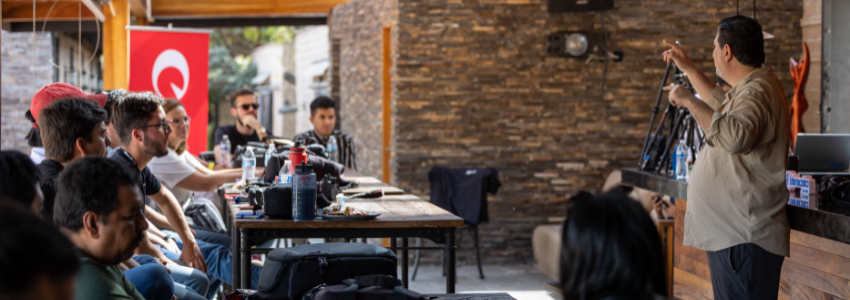“When we are no longer able to change a situation – we are challenged to change ourselves”
– Viktor E. Frankl
THE IDEA: A friend of mine recently pulled me aside at a conference and lovingly challenged me: “Dan, I don’t think you are spending enough time discussing industry TRANSFORMATION within your leadership groups.” He went further: “The game has changed, and I am not sure those you coach understands the new rules threatening their business.” His bluntness was abrupt, refreshing, and he was right. Organizations are going through an unprecedented reboot due to digital and structural shifts, dramatically reducing profit margins, and consumer loyalty. Most people are holding on too tightly to old rules and out-of-date leadership behaviors. It begs the question: Are you open to rethinking the future of high performing teams and your own partnerships?
The expansion of digital, home delivery, and curb side pickup seriously threatens the price position of most retailers. This puts new pressures on those committed to serving their customers. A period of disruptive change leads to significant opportunities for those with courage and the desire for personal growth.
How do we sculpt and reshape ourselves to meet this moment? The following are 7 skills every team must commit to meet this moment.
THE 7-SKILLS:
- Holistic Critical Thinking & Expanded Self-Awareness
- Leading Cultural Change without Authority or Title
- Simplifying & Optimizing Customer and Team Meetings
- Building Executive Impact, Flexibility & Poise under Pressure
- Mastering Courageous Discussions & Owning Difficult Decisions
- Shifting from Presentation to Facilitation, Co-Creation, and the Art of the Question
- Embracing a Digital First Mindset + Technical Knowledge Expansion
Did you notice that 6 of these 7 are soft or influential skills, not technical competencies? In a world of transition, how do you lead change, encourage fierce candor, and elevate your own personal leadership capabilities? If it’s not part of your daily routine, your proficiency fades quickly. It is about commitment to deliberate practice.
Most leaders I interviewed shared that they are committed to reimagining and simplifying how they prepare for and moderate customer meetings. They are creating a culture that is bold, daring, and reassuring.
Recently a leader in one of my groups confessed, “I agree these skills are really important, but we don’t have time to commit to them.” She continued, “I know that sounds ridiculous, doesn’t it?’ She recognized the irony in her statement. Yes, it takes time (and commitment) to work on soft skills. In 15 years of directing leadership groups, I am convinced the very best cultures are devoted to building these skills as part of every gathering.
Your customers are looking for cohorts who welcome daring conversations: those who show up with intent and energy, yet not controlling discussions with tiring presentations. They are looking for open-minded, facilitative, and self-aware teammates. And that is the differentiator.
Acclaimed musician John Coltrane once said, “When you are playing with someone who really has something to say, even though they may be otherwise quite different in style, there’s one thing that remains constant. And that is the tension of the experience, that electricity, that kind of feeling that is a lift sort of feeling.”
That experience is created by the humanity of two people playing music together or chatting over a new idea. It’s personal, grounded in storytelling, and empathetic.
This is the time to meet the moment with your own personal transformation.
My friend reminded me that big change is an opportunity to take ground back from competitors and declare what you stand for with customers and peers. It’s not the time for fear and to run from the moment. Be courageous, don’t flinch, and run to the opportunity.
“Damn the rules, it’s the feeling that counts. You play all 12 notes in your solo anyway.”
– John Coltrane

